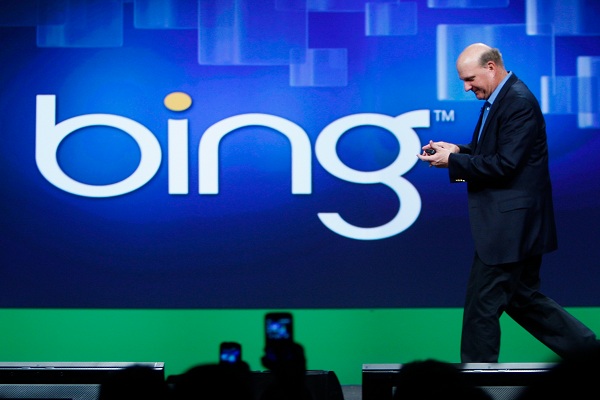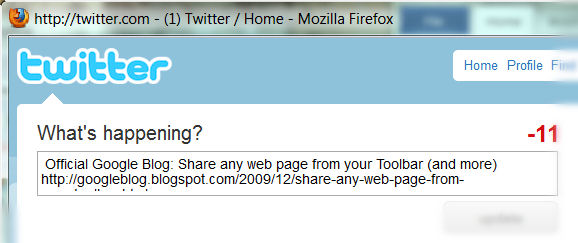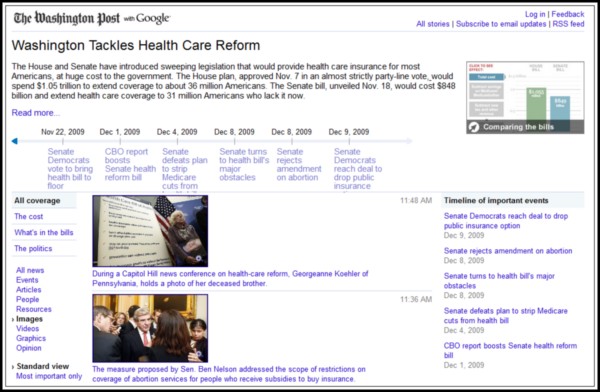![A morphed photograph of Brad Pitt with Angelina Jolie. [Courtesy MorphThing.com]](https://betanews.com/wp-content/uploads/media/44/4422.jpg)
Twitter couldn't save Brangelina
I'm not one to follow the lives of celebrities. I don't watch TMZ, and the very sound of Entertainment Tonight's Mary Hart's voice is enough to make me nauseous. I turn my head as I walk past the supermarket tabloids in the checkout aisle because I could care less who Jennifer Aniston is dating this week or that Elvis was spotted in a rural Kentucky laundromat. I've got better things to do with my life than wonder how many more kids Angelina Jolie and Brad Pitt want to adopt or when she plans on getting another tattoo.
For all my celeb-fatigue, though, I found it interesting this past weekend when I first learned about the Brangelina supercouple's separation not from television, radio, or a newspaper, but from my Twitter feed. After I sarcastically retweeted the supposed news, I heard from a number of friends that they, too, had gotten the news from online sources.
YouTube Rental 'beta' launches this Friday
In the official YouTube blog today, the popular Google-owned video sharing service announced it will be launching a streaming rental service on Friday in partnership with the Sundance Film Festival.
It will only include a handful of movies (five from Sundance 2009-2010, and "a small collection" from other US partners across different industries) that will be available to rent until Sunday, January 31.

Bing may beat Google to compliance with EU anonymization directive
In an announcement early this morning, Microsoft stated it is altering the policy of its search engine Bing with regard to retaining personal data collected from its users. Under a new policy that may take as long as 18 months to implement, the company says, it will anonymize its data logs after only six months of retention rather than the previous 18, in compliance with a European Union directive -- perhaps the first major US-based search engine to comply.
In April 2008, the European Union's advisory body of member states' telecommunications ministers, called the Article 29 Working Party, advised that search engines doing business in their region should anonymize the personally identifiable data they've collected on their users after a six-month period. The theory here has been, after six months' time, search engines won't be able to make much use of them to refine the efficacy of current queries -- the original excuse for Google, Yahoo, and Microsoft to keep such data for longer periods.

Mozilla: No, Firefox XUL add-ons are not an endangered species
Last May, Aza Raskin and the team at Mozilla Labs introduced Jetpack, essentially an extensibility model for the organization's Firefox browser that enables new JavaScript apps to modify the functionality of the browser on the fly. The goal is that anyone who could create a Web page could use exactly the same tools (HTML, CSS, and ordinary JavaScript, plus the appropriate APIs) to build a Firefox add-on. Now on version 0.7, Jetpack is slowly gaining momentum.
But where will that momentum lead? Is Mozilla seriously considering the Jetpack development model as an eventual replacement for XUL (XML User Interface language, pronounced "zool" like the refrigerator-based creature from Ghostbusters)? That was the question ZDNet blogger Adrian Kingsley-Hughes asked earlier this week, in a blog post entitled, "Is Mozilla preparing to ditch add-ons as we know them?"

Google upgrades Docs, cross-promotes Memeo Connect to pull in Office users
Often, when a big company releases a new piece of hardware or software, smaller companies will launch their own products that ride in the bigger product's proverbial draft. But this time, One big launch has rolled another smaller launch in with it.
Today, Google announced it will be expanding the storage capacity of Google Docs to 1GB, and allow single files up to 250 MB to be uploaded, which opens up the ability to upload other file types such as raw graphics files or zipped archives. Word documents are limited to 500 KB in size, and PowerPoint presentations are limited to 10MB, but the general limit is still many multiples higher than the maximum Gmail attachment size.

Nexus One development commences with Android 2.1 SDK update
In addition to launching the latest skirmish in the mobile platform/mobile carrier wars, Google and HTC's Nexus One smartphone also introduced the world to Android 2.1.
Before the Nexus One came out, the Motorola Droid launched in a similar fashion, where the device ran Android 2.0 exclusively before the SDK component was released to the public and other devices were upgraded.

Facebook users share 'Everything,' including how sorry their lives are
Social networking site Facebook has more than 350 million active users, and more than 35 million users update their "status" every day. They could be updated with personal information, music, videos, links, or anything that users feel the need to share with their social group.
During 2009, nearly 13 billion of these status updates were posted, and Facebook has released its "Top Status trends of 2009," indicating just what was on people's minds.

Live Poll: Should Facebook give you your privacy?
Now that Facebook has altered its privacy policy for users, what statement best reflects your personal stance on social networks' privacy policy?(polls)
Last week's change to Facebook's privacy policy resulted in tens of thousands of users being directly confronted with a choice over how Facebook should change its stance. The initial result was confusion, but as folks worked out what the question really meant, they came to a discovery that they were not only being asked, but encouraged, to turn off their privacy settings altogether as a benefit to "Everyone" -- Facebook's new default class.
Now, the group that helped focus the US Federal Trade Commission's attention on Google has turned its sights on Facebook, initiating a complaint action yesterday that could lead to a federal investigation of the subject. Expect Congress to follow suit at some point, perhaps calling Facebook executives to the witness stand. In advance of the coming debate, where do you stand on the subject? That's Betanews Live Poll for this Friday.

Glide OS launches Internet Explorer plugin, BlackBerry app
With all the recent attention given to Google's Chrome OS, it is only natural that interest in other cloud-based environments should be higher than usual. However, interest in Webtop operating systems still remains relatively low.
Earlier this year, Ray Valdes of Gartner Research said, "From a long-term perspective, I don't see any change to current market trends, which are that Webtop ventures are not gaining market traction."

Bing continues to grow, staking its claim in mobile search
Microsoft's six-month old search engine Bing has been performing admirably, says market research firm comScore, and it grew to a 10.3% share of the search market in November.
During the month of November, core US search volume grew by 17.8%, but only Google's and Microsoft's sites increased in share. Yahoo, Ask, and AOL, on the other hand, all declined.

Google URL shortening not ready for prime time in Firefox
Download Google Toolbar for Firefox version 7.0.2009.1214Wb1 from Fileforum now.
You know the global domain name system is not the perfect solution for today's modern Internet when an entire cottage industry evolves around masking it, removing the dot-com and making URLs more portable. TinyURL.com helped pioneer that market years ago, but since that time, bit.ly has become the official shortening service of Twitter, where small URLs are the most precious commodity. Competitor tr.im still struggles to compete there, as its trimmed URLs are automatically replaced with substitutes from preferred partner bit.ly.

iTunes gets cloudy: Will a web-ified future save iTunes or kill it?
I'm not at all surprised that Apple's recent purchase of Lala Media, a previously-ignored music streaming outfit that likely would have flatlined otherwise, is already generating rumblings of impending major change to one of the most pivotal brands in its arsenal. While it was the iPod and iPhone devices that first established Apple's consumer product cred and later sealed its long-term position on the techno-cultural podium, it was iTunes that turned the process of buying, managing and consuming content from a chaotic mess into something that ultimately killed the local record store and permanently changed the entertainment landscape.
If only the world never changed

In a peace offering to newspapers, Google offers a new news format
Exactly what online news should be or become is a subject that consumed the "blue sky" discussions among publishers since the late 1990s. Despite every concept they've ever created, tried or untried, what publishers typically end up with is either something that looks segmented and departmentalized like CNN.com or NYTimes.com, or is basically a blog whose scroll reveals a history of news, like it was printed on a roll of paper towels.
So the concept that Google Labs began attempting yesterday with its "Living Stories" concept (whose name for some reason brings to mind a certain peacock) is absolutely not new. It's been discussed before, in some fashion or another, and even approved -- for what it's worth. But on a large scale, it's never been done until yesterday: assembling all the stories relating to a pertinent, current topic on a page devoted to the topic, not the publisher and not some permanent department of the publication like "Sports" or "Tech."

Google Maps doesn't prevent car accidents, only search accidents
Those of you who follow my Tweets (@TimConneally) know that I got into a car accident yesterday. Nothing too serious, mind you, just a little unexpected voyage into converging traffic. I was hurriedly trying to obey my Google Maps turn-by-turn directions without noticing that the light I was approaching was actually red.
I'm not speaking against Google Maps navigation at all, but the incident successfully brought one of the application's new features to mind: Report Problems in Maps.

Google rolls out real-time search, Near Me Now, extended personalization
After stirring up privacy concerns with a personalized search announcement, industry search engine leader Google threw a press conference today to launch a slate of other new search offerings for PCs and mobile phones, including a possibly equally controversial feature that integrates Twitter tweets and blog posts with news articles in real-time searches.
Google's announcements also include two new location-based options for iPhones and Droid phones: Near Me Now and Product Search.
